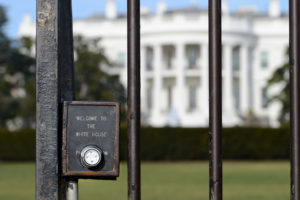
The amendment was necessary because Nevada was just one of 10 states in the United States without a separate court of appeals. The court of appeals hears cases when plaintiffs are dissatisfied with the outcome of their initial trial. Because Nevada had no court of appeals, the Nevada Supreme Court had to preside over and decide on all appeals, including appeals for minor disputes. This kept the Nevada Supreme Court busy with trivial matters, created a significant backlog, and did not leave the court justices sufficient time to consider more complex cases with a broader impact on state law.
With the approval of the new appeals court, plaintiffs and defendants in the state of Nevada will now have a better chance of getting fair adjudication of their legal cases. Appeal of an initial court decision remains a complicated process, as the quality of legal arguments made can be determinative in the outcome of an appeal. Plaintiffs and defendants dissatisfied with a lower court decision and who are seeking to appeal should consult with a Nevada criminal attorney experienced in arguing appellate court cases.
How Will the New Nevada Court of Appeals Work?
Following the creation of the Nevada Court of Appeals, the procedural process for appeals will differ slightly in the state. One thing that will not change is that all appeals must still initially be filed with the Nevada Supreme Court. Now, however, instead of the Court presiding over and deciding all appeals itself, the Court will be able to assign certain cases to the intermediate court.
The Nevada Court of Appeals will take some of the burden off the Supreme Court, which had far more cases than the court could reasonably be expected to handle. The American Bar Association recommends state supreme court justices should preside over no more than 100 cases per year on average in order to give each case due consideration. Before the creation of the Nevada Court of Appeals, state supreme court justices would have had to preside over more than 333 cases on average in 2013 simply to avoid developing a further case backlog.
Plaintiffs and defendants both have the right to appeal decisions in civil court cases, and family court cases, while defendants may also appeal criminal convictions. Appeals are filed and may be successful when there is a legal or procedural error.
The appellate court does not consider whether the lower court judge or the jury was correct in its answers of factual questions that are open for debate or that are subjective. Instead, the appeals court can overturn decisions, affirm decisions, or send cases back with further instructions in situations where there was an error in the way the trial proceeded or the law was applied. Plaintiffs and defendants are entitled to timely decisions when an appeal is filed, and the creation of the new Nevada Court of Appeals makes it possible for cases to be heard more quickly.
The Nevada Appeals Court will be operating within the Regional Justice Center in Las Vegas, where there was already space for the court. This location was chosen as a cost-saving measure. The estimated operating expenses, including judicial salaries and other costs, is expected to be approximately $800,000 per year.